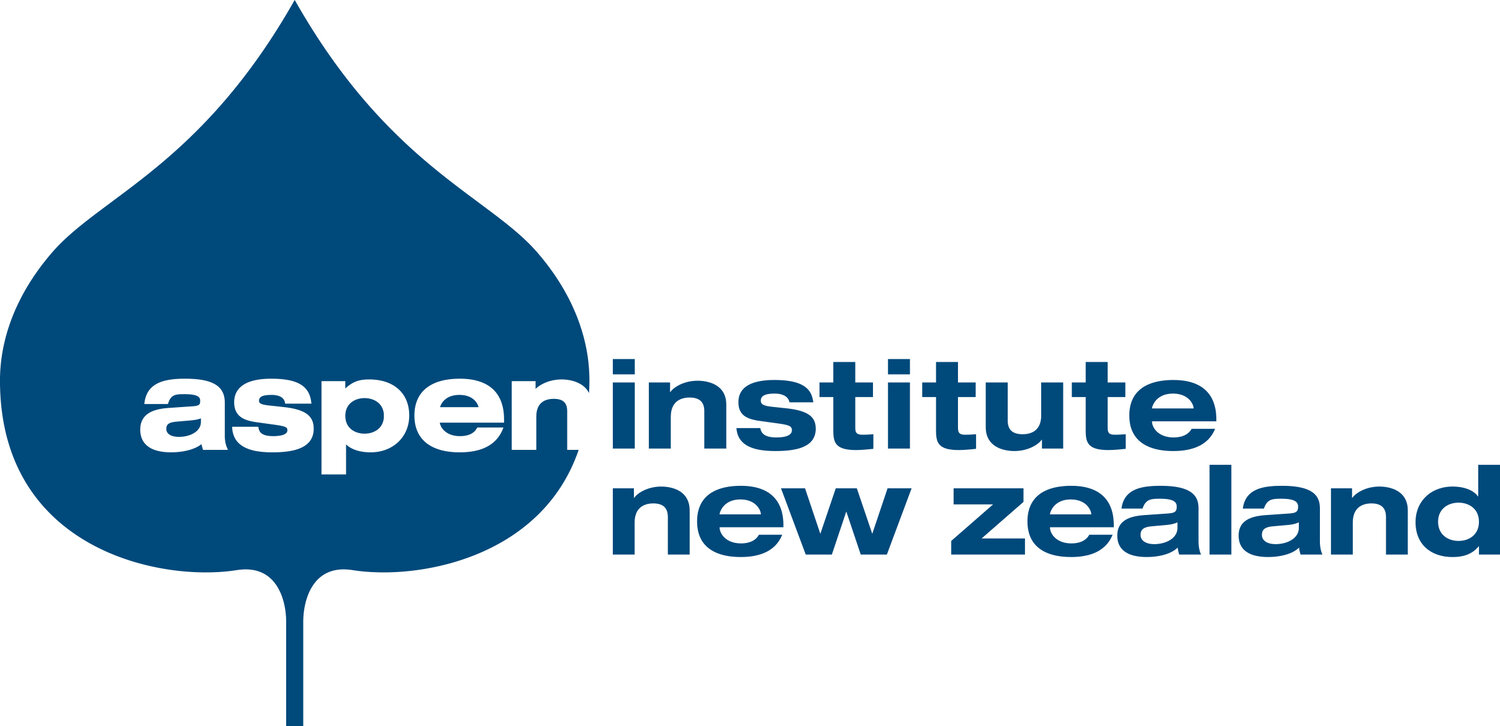The great misinformation challenges of our time
The Aspen Institute New Zealand discusses the great misinformation challenges of our time, media, science, and the power of the tech giants.
As anti-vaxxers mobilise to high-jack PM Jacinda Ardern’s social feeds, the Director-General of Health warns against social media Covid-19 misinformation. Does censorship of the major social networks prompt users to migrate to more dangerous platforms like Parler, Telegram or Gab? Have social media tech giants gone too far to censor and ban users who go against their guidelines, is this the right approach or should governments be stepping in to regulate and create policy?
Some of the questions being asked as The Aspen Institute NZ gathered with some of the brightest minds in New Zealand’s media, online safety, tech, science, policy, and academia to discuss the great misinformation challenges of our time.
Participants from diverse backgrounds, young and old, joined international experts from Singularity University, Google NZ and Massey University for MISINFORMATION CHALLENGES, Aspen’s fifth seminar in the Future Challenges: Systems thinking and Values based Leadership series, a two-day online event exploring misinformation issues in a year that has been dominated by pandemic induced fake news.
Sessions covered critical topics such as the common good and systems dynamics, the science of misinformation and policy trade-offs.
The first session of the day, facilitated by Singularity University’s Neil Jacobstein kick-started conversations addressing the ‘common good’ and what does that mean today regarding thoughtful civility vs polarised dialogs. Followed by systems dynamics, as participants examined the relationship of systems thinking and misinformation. Umme Ammara, Economist and Data Scientist from Pakistan, said,
All problems result from the mismatch between how real-world systems work and how we think they work
Umme’s advice was to ‘think better, become a systems thinker!'.
But how does systems thinking allow us to solve the problem of misinformation? [1]With traditional linear thinking, the quick fix to the spread of fake news applied by the tech giants is labelling misinformation with warnings from fact checking organisations. In the short term this quick fix may lessen the problem, but what are the effects long term? Fact checking warnings on credible news sources can damage the credibility of legitimate media outlets, making matters worse, leading to confusion, not clarity, about the truth and resulting in further public scepticism. What about using AI technology to detect deep fakes? Or could this technology also be used to create better, more convincing misinformation? The systems approach looks at the whole system of misinformation and how best to apply solutions at leverage points for the greatest impact. What would happen if governments invested in teaching digital literacy and the tech giants focused on spreading ethical awareness? Research and modelling show this long term solution could have a far greater impact on the spread of misinformation, than any short term interventions.
The second session opened a conversation facilitated by political scientist, Professor Claire Robinson, on the science of misinformation. Where does misinformation come from, how can we detect it and combat the spread? Why does fake news spread so much quicker than the truth? The tech platforms and social media channel’s' omnipresence and ease of use has revolutionised the generation and distribution of information in today's world. However, easy access to information does not equal an increased level of public knowledge. Unlike traditional media channels, social networks also facilitate faster and wider spread of misinformation.
Parminder Kaur, from the Ministry of Foreign Affairs and Trade said:
I particularly enjoyed the thought provoking discussion led by Professor Claire Robinson about the science of misinformation, and what we can do to make accurate information more accessible and inclusive for diverse communities.
The final session led by Google NZ’s head of public affairs and policy, Ross Young focused the conversations on the current, planned, and potential future policies that could address misinformation and what some would call our current ‘infodemic’.
Social media companies have been under tremendous pressure to do something about the proliferation of misinformation on their platforms. Companies like Facebook and YouTube have responded by applying misinformation strategies, but is this self-imposed regulation enough to combat misinformation or should governments step in to regulate user generated content?
Tom Wilkinson, a representative of the US Embassy Youth Council said:
Each session was incredibly engaging, with poignant and insightful comments from highly informed individuals from a variety of backgrounds. A special mention has to go to Ross Young's session as one that I found particularly thought-provoking. Throughout this session, we had to apply points from the previous day's discussions to try and determine possible policies to address misinformation - a difficult task indeed!
Graeme Acton, Asia Media Centre Manager summed up the three sessions:
Many thanks for a stimulating and thoughtful webinar. I thought the level of debate was an extremely good combination of real world dynamics, academic thought leadership and insightful points of view from a varied group of people. I think the Institute can be a valuable contributor to public debate in NZ and look I forward to future sessions.
[1] Systems Thinking - Ammara/Bukhari/Qadir
The Aspen Institute New Zealand has a non-partisan reputation for gathering curious minds, creatives, scholars, and members of the public to address some of the world’s most complex problems. But the goal of these convenings is to have an impact beyond the conference room. They are designed to provoke, further and improve actions taken in the world.
Aspen Institute NZ creates space for a deeper conversation. Sign up to our monthly newsletter to keep up to date with future events.

